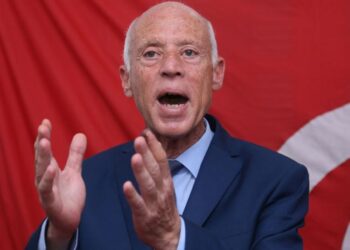The Israeli military has confirmed the death of Captain Eitan Itzhak Oster, a 22-year-old soldier who was killed during combat operations in Lebanon. This marks the first official loss for Israel since its forces crossed the border to engage Hezbollah militants. While the Israeli military didn’t release further details on the circumstances of Oster’s death, it’s clear that the conflict is intensifying as Hezbollah claims their fighters clashed with Israeli troops who allegedly “infiltrated” the southern Lebanese village of Adaysseh.
What They Are saying
Hezbollah, ever eager to play the role of the “people’s resistance,” was quick to spin the narrative, announcing that Israeli soldiers had retreated after attempting to enter Adaysseh. They framed it as yet another moment of triumph against what they call Israeli aggression. “This is just the start of the confrontation,” Hezbollah spokesman Mohammad Afif proudly proclaimed to the media during a tour of the group’s stronghold in Beirut’s southern suburbs. According to Afif, the group’s fighters are on high alert, bracing for what seems to be an inevitable escalation.

Why It Matters
The tension between Israel and Hezbollah is no stranger to flare-ups, but this latest conflict appears to have pushed the rivalry into a more dangerous territory. With the killing of Hezbollah’s leader Hassan Nasrallah in an Israeli airstrike just weeks ago, the region is on edge. Both sides seem to be locked into a deadly game of retaliation, and neither appears willing to back down.
Israel’s cross-border operations come in response to a growing threat from the Iran-backed militant group, which has long posed a serious challenge to Israel’s security. For weeks, Israel has been launching airstrikes into southern Lebanon, targeting Hezbollah positions. The militant group, in turn, has responded with rocket attacks, creating an atmosphere of imminent war.
And of course, Iran, Hezbollah’s ever-present patron, is never too far from the action. Tehran has consistently backed the group both financially and militarily, and its involvement has only fueled the growing tension. Iran, while not directly participating in the recent clashes, has been openly defiant, with Supreme Leader Ayatollah Ali Khamenei declaring that Israel is “too weak to cause significant damage” to Hezbollah’s operations.
Meanwhile, the Lebanese army reported that Israeli forces had briefly breached the demarcation line separating the two countries. But what’s a little boundary violation in a region where borders are constantly tested?
Bottom Line
It’s a vicious cycle of provocation, retaliation, and revenge. The more Israel strikes, the more Hezbollah claims victories, no matter how small or symbolic. And with Iran lurking in the background, fanning the flames of conflict, it’s a confusing situation . The world watches as two ancient adversaries once again square off, each side waiting for the other to blink first.

















